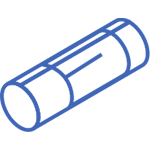

Finder 40.52.7.060.0000
Manufacturer No:
40.52.7.060.0000
Tiny WHSLManufacturer:
Utmel No:
862-40.52.7.060.0000
Package:
-
Description:
Finder 40.52.7.060.0000 PCB relay 60 V DC 8 A 2 change-overs 50 pc(s)
Quantity:
Unit Price: $7.285333
Ext Price: $7.29
Delivery:





Payment:











In Stock : 2000
Minimum: 1 Multiples: 1
Qty
Unit Price
Ext Price
1
$7.285333
$7.29
10
$6.872956
$68.73
100
$6.483921
$648.39
500
$6.116906
$3,058.45
1000
$5.770666
$5,770.67
Want a lower wholesale price? Please send RFQ, we will respond immediately.
RFQ Now
Add to RFQ list
You may place an order without registering to Utmel.
We strongly suggest you sign in before purchasing as you can track your order in real time.
For your convenience, we accept multiple payment methods in USD, including PayPal, Credit Card, and wire transfer.
RFQ (Request for Quotations)It is recommended to request for quotations to get the latest prices and inventories about the part.
Our sales will reply to your request by email within 24 hours.
1. You'll receive an order information email in your inbox. (Please remember to check the spam folder if you didn't hear from us).
2. Since inventories and prices may fluctuate to some extent, the sales manager is going to reconfirm the order and let you know if there are any updates.
- TypeParameter
- Mounting Type
The "Mounting Type" in electronic components refers to the method used to attach or connect a component to a circuit board or other substrate, such as through-hole, surface-mount, or panel mount.
PCB Mount - Material
In electronic components, the parameter "Material" refers to the substance or material used in the construction of the component. The choice of material is crucial as it directly impacts the component's performance, durability, and other characteristics. Different materials have varying properties such as conductivity, resistance to heat, corrosion resistance, and mechanical strength, which determine how the component functions in a circuit. Common materials used in electronic components include metals like copper and aluminum, semiconductors like silicon, insulators like ceramics and plastics, and various alloys. Selecting the appropriate material is essential for designing reliable and efficient electronic components.
Aluminum - Shape
In electronic components, the parameter "Shape" refers to the physical form or outline of the component. It describes the external appearance of the component, including its dimensions, size, and overall structure. The shape of an electronic component can vary widely depending on its function and design requirements. Common shapes include rectangular, cylindrical, square, and circular, among others. The shape of a component is an important consideration in the design and layout of electronic circuits, as it can impact factors such as space utilization, heat dissipation, and ease of assembly.
Square, Fins - Package Cooled
Package Cooled refers to a type of thermal management in electronic components where the device packaging is designed to dissipate heat efficiently. This involves integrating cooling features such as heat sinks or specialized materials that enhance heat transfer away from the component. The goal is to maintain optimal operating temperatures and improve reliability and performance of the electronic device. It is commonly used in high-power applications where excessive heat generation can affect functionality.
Assorted (BGA, LGA, CPU, ASIC...) - Material Finish
Material Finish in electronic components refers to the surface treatment applied to the component to enhance its performance, durability, and reliability. The finish can protect the component from environmental factors such as moisture, corrosion, and mechanical stress. Common material finishes include gold plating, tin plating, silver plating, and organic coatings. The choice of material finish depends on the specific requirements of the application, such as conductivity, solderability, and cost-effectiveness. Proper material finish selection is crucial to ensure the long-term functionality and quality of electronic components.
Blue Anodized - Dim(W x H x D) 12.4 x 25 x 29 mm
- Coil nominal voltage60V DC
- Switching current (max.)8A
- Content50pc(s)
- Nominal current8
- Type of electric connectionPCB connection
- Number of contacts as change-over contact2
- Number of contacts as normally open contact0
- Voltage type for actuatingDC
- Number of contacts as normally closed contact0
- Rated control supply voltage at DC60 - 60
- With detachable clampsNo
- Series
In electronic components, the "Series" refers to a group of products that share similar characteristics, designs, or functionalities, often produced by the same manufacturer. These components within a series typically have common specifications but may vary in terms of voltage, power, or packaging to meet different application needs. The series name helps identify and differentiate between various product lines within a manufacturer's catalog.
pushPIN™ - Part Status
Parts can have many statuses as they progress through the configuration, analysis, review, and approval stages.
Active - TypeTop Mount
- Depth
In electronic components, "Depth" typically refers to the measurement of the distance from the front to the back of the component. It is an important parameter to consider when designing or selecting components for a project, as it determines how much space the component will occupy within a circuit or device. The depth of a component can impact the overall size and layout of the circuit board or enclosure in which it will be installed. It is usually specified in millimeters or inches and is crucial for ensuring proper fit and functionality within the intended application.
29mm - Attachment Method
The attachment method in electronic components refers to the technique used to connect a component to a circuit board or assembly. This can include methods such as soldering, bonding, or using connectors. The choice of attachment method can affect the reliability, performance, and manufacturability of the electronic device. Different methods may be suited for specific applications based on factors like mechanical stress, thermal conductivity, and ease of assembly.
Push Pin - Height Off Base (Height of Fin)
The parameter "Height Off Base (Height of Fin)" in electronic components refers to the distance between the base of the component and the top of any fins or protrusions on the component. This measurement is important for determining the overall dimensions and clearance requirements of the component within a circuit or system. It helps in ensuring proper fit and alignment of the component during installation and assembly. Manufacturers provide this specification to assist designers and engineers in selecting the appropriate components for their applications based on the available space and mechanical constraints.
1.181 (30.00mm) - Thermal Resistance @ Forced Air Flow
Thermal Resistance @ Forced Air Flow is a measure of how effectively an electronic component can dissipate heat when subjected to airflow. It quantifies the resistance to heat transfer from the component to the surrounding air in scenarios where forced ventilation is employed, such as with fans. This parameter is crucial for evaluating thermal performance, as it impacts the component's operating temperature and reliability under conditions of active cooling. Lower thermal resistance values indicate better heat dissipation capabilities, essential for maintaining optimal performance in high-power applications.
9.30°C/W @ 100 LFM - Number of Poles2
- Coil Voltage
Coil voltage refers to the electrical potential difference that is applied across the coil of an electromechanical device, such as a relay or a solenoid. This voltage is essential for energizing the coil, creating a magnetic field that enables the device to perform its intended function, such as opening or closing contacts. The coil voltage is specified by the manufacturer and varies depending on the design and application of the component, commonly available in standard values like 5V, 12V, 24V, and others. Proper selection of coil voltage is crucial for optimal performance and longevity of the device.
60V dc - Switching Current
Switching current refers to the maximum current that an electronic component, such as a transistor or relay, can handle when transitioning between its on and off states. It is a critical parameter that affects the performance and reliability of the component during switching operations. Exceeding the specified switching current can lead to overheating, damage, or failure of the device. Understanding switching current is essential for designing circuits that operate safely and efficiently.
8A - Thermal Resistance @ Natural
Thermal Resistance @ Natural refers to the ability of an electronic component to dissipate heat under natural convection conditions without forced airflow. It is measured in degrees Celsius per watt and represents the temperature rise of the component above the ambient temperature for each watt of power dissipated. This parameter is crucial for understanding how effectively a component can manage heat during operation, ensuring reliability and performance. Manufacturers provide this value to help designers assess thermal management strategies in circuit designs.
-- - Power Dissipation @ Temperature Rise
Power Dissipation at Temperature Rise refers to the maximum amount of power an electronic component, such as a semiconductor or resistor, can dissipate while maintaining a specified increase in temperature above its ambient environment. This parameter is crucial for ensuring the reliability and longevity of components, as excessive heat can lead to failure. It is typically expressed in watts and is determined by the thermal characteristics of the component and its cooling mechanisms. Proper management of power dissipation is essential for optimal performance in electronic circuits.
-- - Width0.984 (25.00mm)
- Length0.984 (25.00mm)
- Diameter
In electronic components, the parameter "Diameter" typically refers to the measurement of the width of a circular component, such as a resistor, capacitor, or inductor. It is a crucial dimension that helps determine the physical size and fit of the component within a circuit or on a circuit board. The diameter is usually measured in millimeters (mm) or inches (in) and is important for ensuring proper placement and soldering of the component during assembly. Understanding the diameter of electronic components is essential for selecting the right size for a specific application and ensuring compatibility with other components and the overall design of the circuit.
-- - Height25mm
![22.34.0.024.4720]()
22.34.0.024.4720
Finder Relays, Inc.![34.51.7.005.0010]()
34.51.7.005.0010
Finder Relays, Inc.![36.11.9.012.4011]()
36.11.9.012.4011
Finder Relays, Inc.![39.01.8.230.0060]()
39.01.8.230.0060
Finder Relays, Inc.![22.32.0.230.4420]()
22.32.0.230.4420
Finder Relays, Inc.![22.34.0.048.4720]()
22.34.0.048.4720
Finder Relays, Inc.![38.61.7.024.4050]()
38.61.7.024.4050
Finder Relays, Inc.![39.61.3.230.0060]()
39.61.3.230.0060
Finder Relays, Inc.![40.31.9.024.5000]()
40.31.9.024.5000
Finder Relays, Inc.![34.51.7.048.0019]()
34.51.7.048.0019
Finder Relays, Inc.











